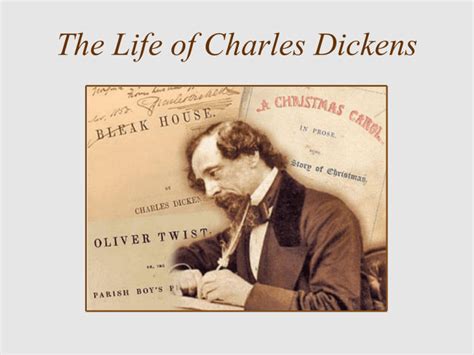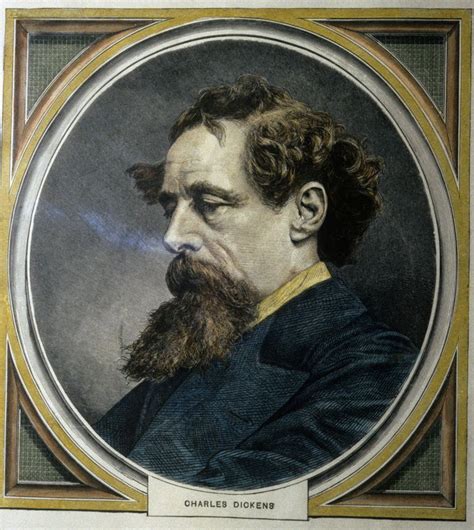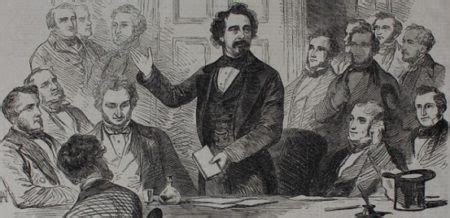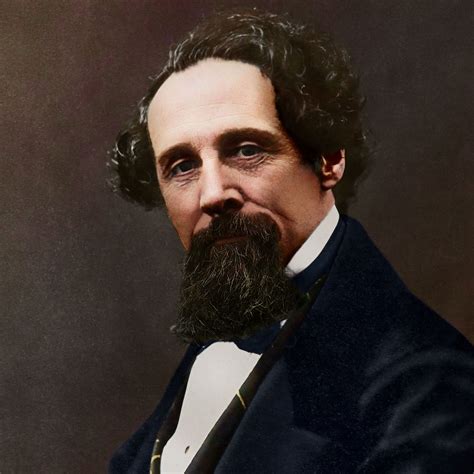Charles Dickens was a literary giant of the 19th century whose works continue to captivate readers around the world. His keen observation of society, colorful characters, and compelling storytelling have cemented his place in the literary canon.
From his humble beginnings in Portsmouth, England, to his rise to fame as one of the most acclaimed authors of his time, Dickens' life was a fascinating journey of triumphs and tribulations. His experiences shaped his writing, infusing his novels with a deep understanding of human nature and social injustices.
Join us on a journey through the life and creativity of Charles Dickens, exploring the man behind the iconic stories that have stood the test of time.
The Early Life of Charles Dickens

Charles Dickens was born on February 7, 1812, in Portsmouth, England. His childhood was marked by financial struggles and family hardships, which had a profound influence on his later works as a writer. Despite these challenges, Dickens showed early signs of creativity and intelligence, which would shape his future career as one of the most celebrated authors of the Victorian era.
Dickens's Childhood and Family Background
In this section, we will delve into the early years of Charles Dickens's life and explore the influences of his family background on his creativity and literary works.
| Parents: John Dickens and Elizabeth Dickens | Siblings: Seven siblings, including his brother Frederick |
| Early Life: Born in 1812 in Portsmouth, England | Education: Attended school until age 15, then worked in a factory |
| Family Life: Married Catherine Hogarth in 1836, had ten children together | Influences: Family struggles, poverty, and social injustices |
The Literary Career of Charles Dickens

Charles Dickens embarked on a prolific literary career that spanned over three decades, during which he wrote numerous novels, short stories, and non-fiction works that continue to captivate readers around the world. His unique storytelling style, compelling characters, and social commentary set him apart as one of the greatest literary figures of the Victorian era.
- Dickens' early works, such as "The Pickwick Papers" and "Oliver Twist", showcased his keen observations of society and his ability to blend humor with social criticism.
- As his career progressed, Dickens delved deeper into themes of poverty, injustice, and the struggles of the working class, as seen in novels like "David Copperfield" and "Hard Times".
- One of Dickens' most popular works, "A Christmas Carol", not only entertained readers with its ghostly tale of Ebenezer Scrooge but also served as a powerful call for social reform.
- Throughout his career, Dickens' writing evolved, becoming more complex and introspective, as seen in novels like "Great Expectations" and "Bleak House".
Dickens's Major Works and Themes
In this section, we will explore some of Charles Dickens's most prominent literary works and the recurring themes that are present throughout his writing.
| Major Works | Themes |
|---|---|
| Oliver Twist | Social injustice, poverty, innocence |
| Great Expectations | Ambition, class struggle, identity |
| A Tale of Two Cities | Revolution, sacrifice, resurrection |
| David Copperfield | Personal growth, perseverance, friendship |
The Social Activism of Charles Dickens

Charles Dickens was not only a prolific writer and master storyteller, but also a passionate advocate for social change and reform during the Victorian era. Through his novels, journalism, and public speaking engagements, Dickens shed light on the inequalities and injustices of his time, and used his platform to raise awareness and mobilize action on issues such as poverty, child labor, education, and prison reform.
| Dickens' Novel: "Oliver Twist" | In his novel "Oliver Twist," Dickens exposes the harsh realities of orphanages and workhouses, shining a light on the plight of impoverished children in Victorian London. The character of Oliver serves as a symbol of innocence and resilience in the face of adversity, inspiring readers to consider the treatment of society's most vulnerable members. |
| Dickens' Philanthropy | Beyond his literary works, Dickens was actively involved in charitable efforts, including fundraising for hospitals, schools, and relief organizations. He believed in the power of community and compassion to effect positive change, and often used his celebrity status to rally support for various social causes. |
| Public Speaking Engagements | Dickens was an engaging and persuasive orator, captivating audiences with his impassioned speeches on social issues. He traveled extensively throughout Britain and the United States, delivering lectures on the importance of education, the need for social welfare programs, and the urgency of prison reform. |
Dickens's Advocacy for Social Change
Throughout his life and career, Charles Dickens used his platform as a writer to advocate for social change and bring attention to the injustices and inequalities of Victorian society.
- Dickens's novels often shed light on the harsh realities faced by the lower classes, exposing the poverty, exploitation, and corruption that were prevalent during his time.
- His vivid portrayals of characters living in deplorable conditions sparked public outcry and influenced reforms in areas such as child labor, education, and working conditions.
- Dickens's philanthropic efforts, such as supporting various social causes and organizations, further demonstrated his commitment to improving the lives of the marginalized and disadvantaged.
The Personal Life of Charles Dickens

Explore the private world of Charles Dickens, delving into his relationships, daily routines, and personal struggles. Uncover the man behind the renowned author and gain insight into how his personal experiences influenced his literary works.
Dickens's Relationships and Personal Struggles
In this section, we will delve into the intricate web of relationships that Charles Dickens cultivated throughout his life, as well as the personal struggles and challenges he faced along the way.
Dickens's relationships were a central aspect of his life, shaping both his personal and professional endeavors. From his tumultuous marriage to Catherine Hogarth to his close friendships with fellow writers such as Wilkie Collins, Dickens's interactions with others played a significant role in his creative output.
However, behind the facade of success and fame, Dickens also grappled with personal struggles that often went unseen by the public eye. His own experiences of poverty and hardship informed much of his writing, and his battles with mental health issues and familial conflicts added a layer of complexity to his life and work.
FAQ
What were some major events in Charles Dickens' life that influenced his writing?
Charles Dickens experienced poverty and hardship as a child, which greatly impacted his portrayal of social issues in his novels. Additionally, his work as a journalist and his travels around Europe gave him firsthand experiences that he incorporated into his writing.
How did Charles Dickens become one of the most popular and influential writers of his time?
Charles Dickens' ability to create relatable characters, his keen observations of society, and his skillful storytelling made him a beloved author during his lifetime. His serialized novels, such as "Oliver Twist" and "Great Expectations," captured the public's imagination and sparked discussions about social reform.
What were some of Charles Dickens' most famous works and what themes did he explore in them?
Some of Charles Dickens' most famous works include "A Christmas Carol," "David Copperfield," and "Bleak House." In his novels, he explored themes of poverty, class inequality, morality, and redemption, often drawing attention to the plight of the lower classes in Victorian England.
How did Charles Dickens' personal life and relationships influence his writing?
Charles Dickens' tumultuous personal life, including his difficult marriage and estrangement from some of his children, often mirrored the themes of his novels. These personal experiences added depth and complexity to his characters and storylines, giving them a sense of authenticity and emotional resonance.
What legacy did Charles Dickens leave behind in the world of literature?
Charles Dickens' impact on literature and society can still be felt today. His works continue to be studied and adapted for film, television, and stage, and his portrayal of social issues and characters from all walks of life have inspired generations of writers to tackle similar themes in their own work.
What were the major influences on Charles Dickens' writing style and themes?
Charles Dickens drew inspiration from his own difficult childhood, social issues of his time, and the people he encountered in his daily life. His writing style was shaped by his keen observations of society and his empathy for the less fortunate.



